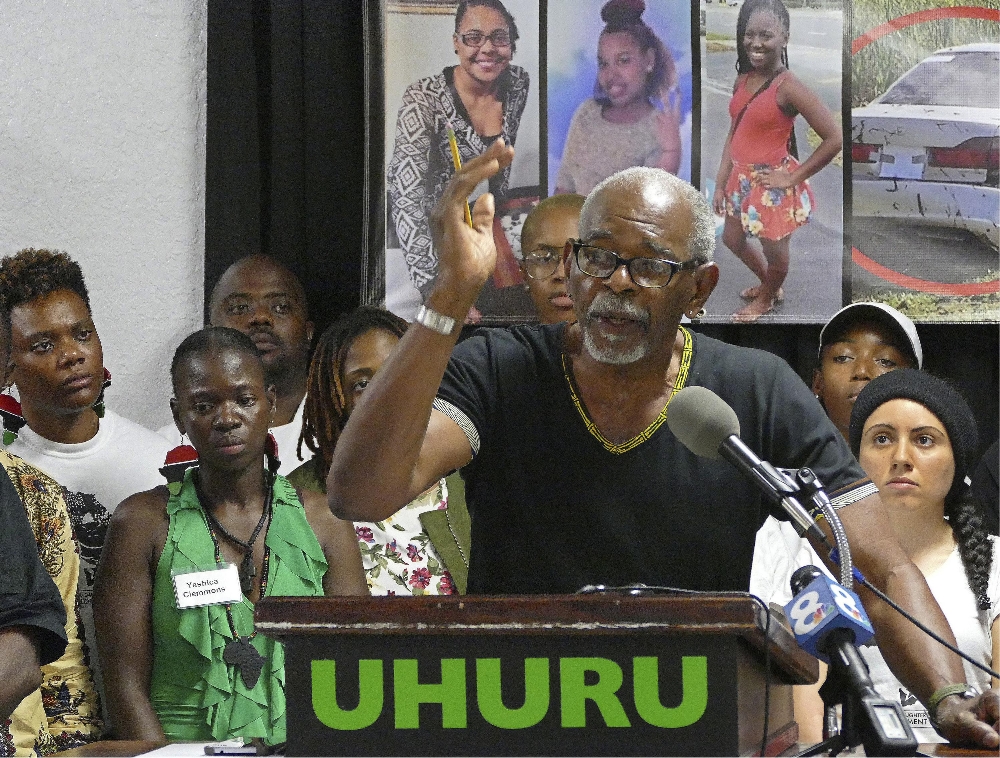The US military says it has carried out four new air strikes on militants to defend civilians in northern Iraq.US Central Command said jet fighters and drones had destroyed armoured carriers and a truck that were firing on members of the Yazidi sect.
Thousands of civilians fled into the mountains after the Islamic State (IS) overran the town of Sinjar a week ago.
This is the third round of US air strikes since they were authorised by President Barack Obama.
The previous strikes targeted IS (formerly known as Isis) forces threatening the Kurdish city of Irbil.
Aid consignments
A US military statement said the latest strikes had been defending members of the Yazidi religious group who were being “indiscriminately attacked” near Sinjar.
It said a mix of fighter jets and drones destroyed an IS armoured personnel carrier (APC) that was firing on civilians.
The statement said US aircraft then monitored movement of other APCs and an armed truck and attacked them.
The series of strikes is the first time US forces have been directly involved in a military operation in Iraq since they withdrew from the country in late 2011.
The Pentagon also said a third US air-drop of food and water had been made on Saturday night to refugees on Mt Sinjar.
One C-17 and two C-130 cargo aircraft dropped a total of 72 bundles of supplies.
Pentagon spokesman Rear Admiral John Kirby told the BBC it had been assessed that all 72 had “got into the right hands”.
France and Britain have also announced that they will deliver aid consignments.
French Foreign Minister Laurent Fabius is travelling to Baghdad and Irbil for talks on Sunday.
‘Barefoot and tired’
IS has seized swathes of land in eastern Syria and northern and western Iraq in recent months, declaring it a “caliphate”.
The jihadists have also seized Mosul dam – Iraq’s largest – where they have hoisted their black flags and are patrolling its perimeter.
The militant Islamists have been widely accused of persecuting and killing members of other faiths.
The UN’s children’s agency, Unicef, says at least 56 Yazidi children have died of dehydration in the mountains around Sinjar.
UK officials estimated on Saturday that between 50,000 and 150,000 people could be trapped there.
Juan Mohammed, a local government spokesman in the Syrian city of Qamishli, told AP news agency that more than 20,000 starving Yazidis had fled across the border.
He said columns of refugees were running a gauntlet of gunfire through a tenuous “safe passage” being defended by forces of Iraq’s autonomous Kurdistan Region.
“They are barefoot, tired and left everything behind,” he said.
Mr Mohammed warned that without significant help soon, those who haven’t crossed “will be subjected to genocide.”
Amnesty International aid worker Donatella Rovera told the BBC that thousands of those trapped on the north side of the mountains had managed to escape, but added: “The most acute situation is for those on the southern side, they cannot get to the safe passage that has been opened.”
Call for Iraqi unity
On Saturday, President Obama warned it was “going to take some time” to help Iraqis overcome the jihadist-led rebellion and stabilise their country.
He said, in the meantime, the US air strikes were destroying IS arms and equipment.
“We feel confident we can prevent [IS] from going up the mountain and slaughtering the people who are there,” he said.
“But the next step, which is going to be complicated logistically, is how do we give safe passage for people down from the mountain and where can we ultimately relocate them so that they are safe.”
The US has been pressing Iraq’s leaders to form a unity government to help tackle the threat from jihadists.
Iraqi politicians have been unable to form a government since April’s parliamentary elections, which were won by Prime Minister Nouri Maliki’s State of Law Coalition.
Christians
- The majority are Chaldeans, part of the Catholic Church
- Numbers have fallen from around 1.5 million since the US-led invasion in 2003 to 350,000-450,000
- In Nineveh province, they live mainly in towns such as Qaraqosh (also known as Baghdida), Bartella, al-Hamdaniya and Tel Kef
Yazidis
- Secretive group whose origins and ethnicity are subject to continuing debate
- Religion incorporates elements of many faiths, including Zoroastrianism
- Many Muslims and other groups view Yazidis as devil worshippers
- There are estimated to be around 500,000 Yazidis worldwide, most living in Iraq’s Nineveh plains

















